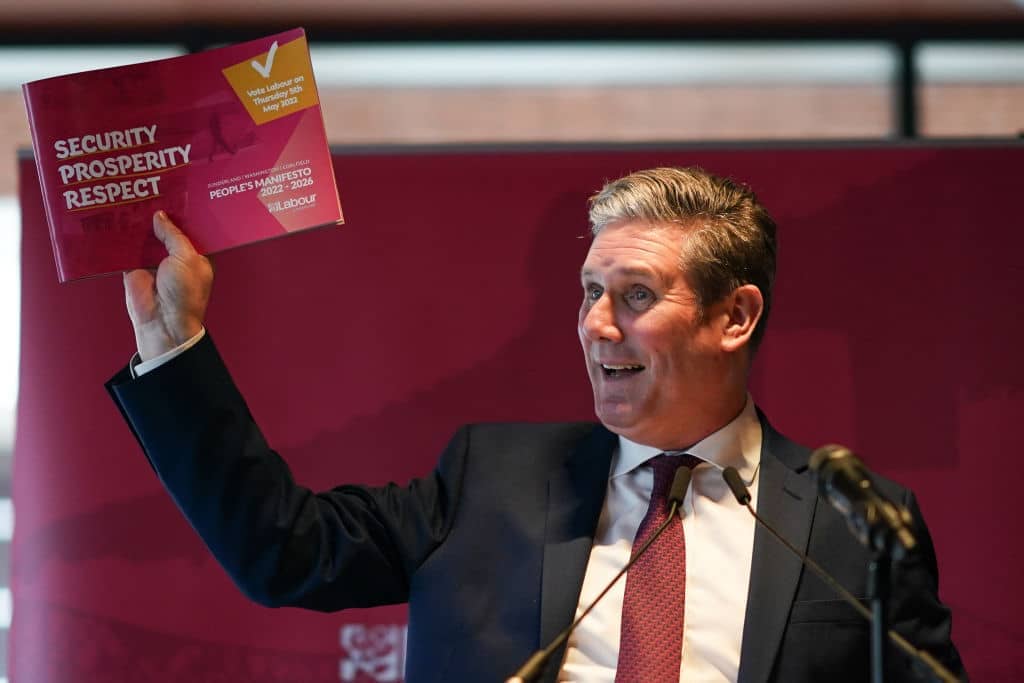Boris Johnson and Keir Starmer had one thing in common at PMQs: they were both keen to talk about the escalating situation in Ukraine. While the Prime Minister wants to use the crisis to show there are more important issues than parties, the Labour leader views it as an opportunity to put some clear blue water between himself and his predecessor, Jeremy Corbyn.
Starmer is using the Ukraine situation this week to emphasise Labour’s return to the centre
His call at Prime Minister’s Questions to ban Russia Today has already received some criticism from figures on the left and right of the party who believe it would be self-defeating. Whether or not Russia Today is banned, calling for it has one clear advantage for Starmer – it distances him from the Corbyn era, given the former Labour leader appeared on the propaganda channel.
As I say in this week’s magazine, Starmer is using the Ukraine situation this week to emphasise Labour’s return to the centre. He recently reaffirmed Labour’s support for Nato and distanced himself and his party from the Stop the War coalition that Corbyn so keenly advocated for. Starmer described the group’s members as ‘not benign voices for peace’. ‘We don’t expect to get lots of new voters because of Ukraine but it shows there is a Labour leader who is decent and respectable,’ says one Starmer ally.
It’s in stark contrast to how Corbyn reacted when he was party leader during the Salisbury poisonings. Corbyn and his team refused to condemn Russia and suggested that a sample of Novichok should be sent to Moscow so that the Kremlin could say whether or not it was theirs. At the time, Starmer, then shadow Brexit secretary, broke rank and publicly backed Theresa May’s response in a television appearance. By using the current situation to emphasise differences with his own side rather than with the Tories, the hope is that they can undo some of the damage of the Corbyn years when it comes to the party’s reputation on foreign affairs.







Comments